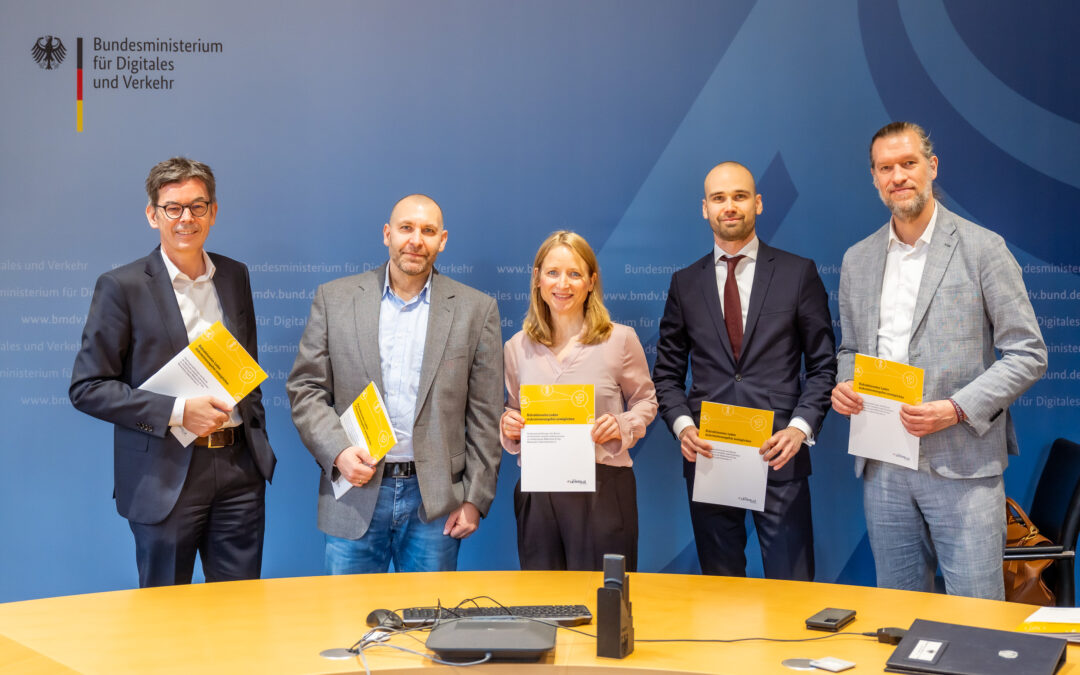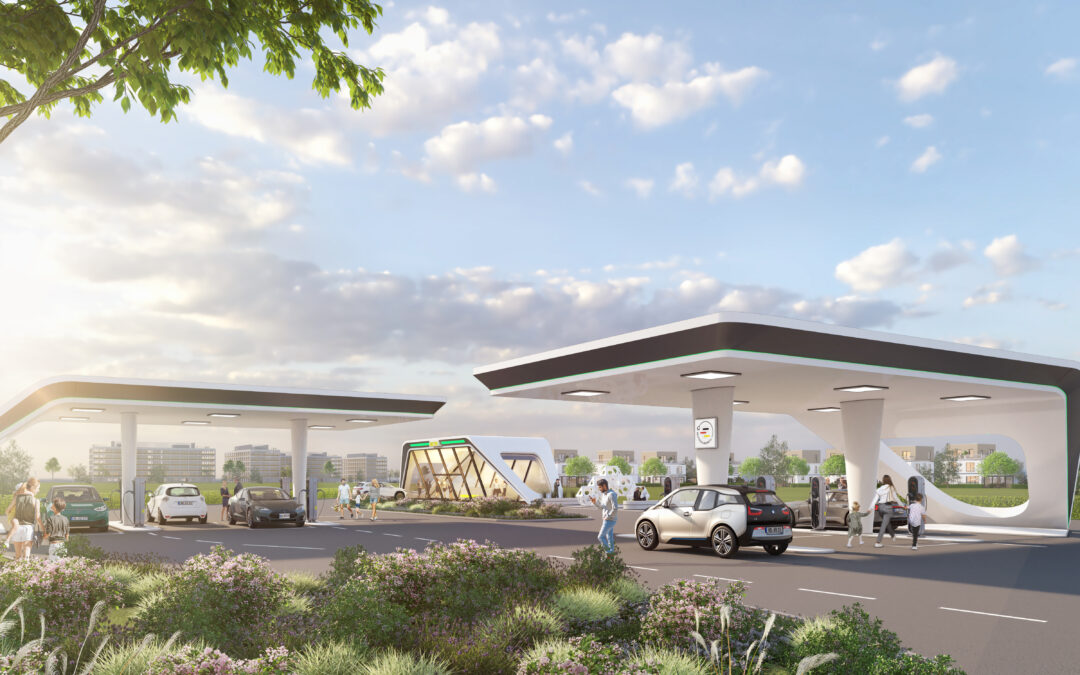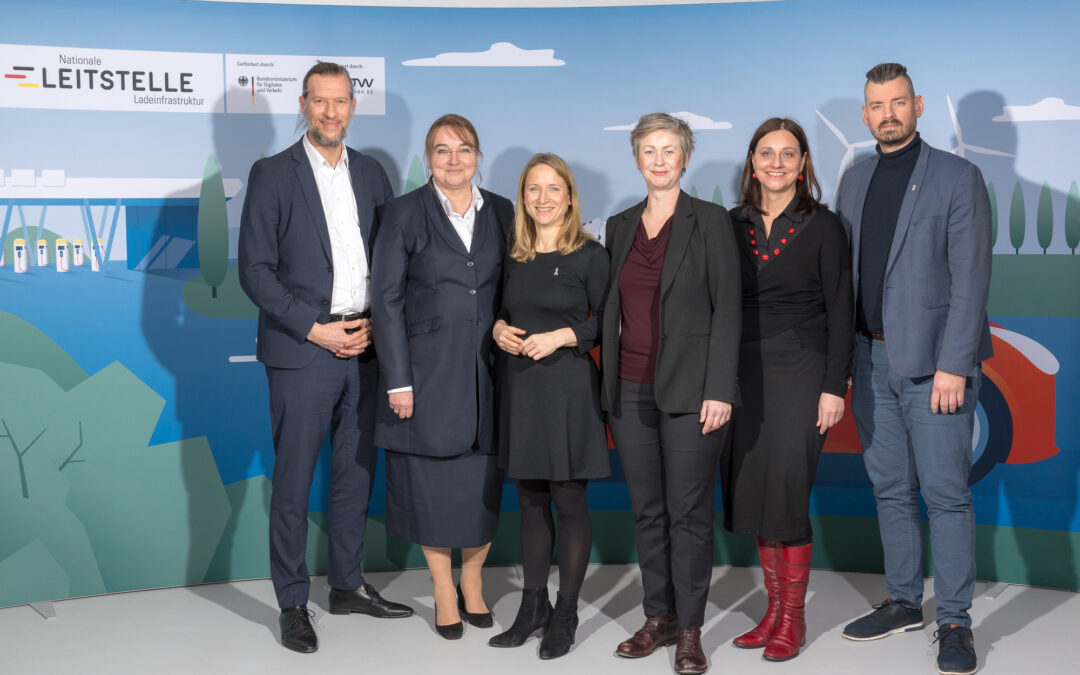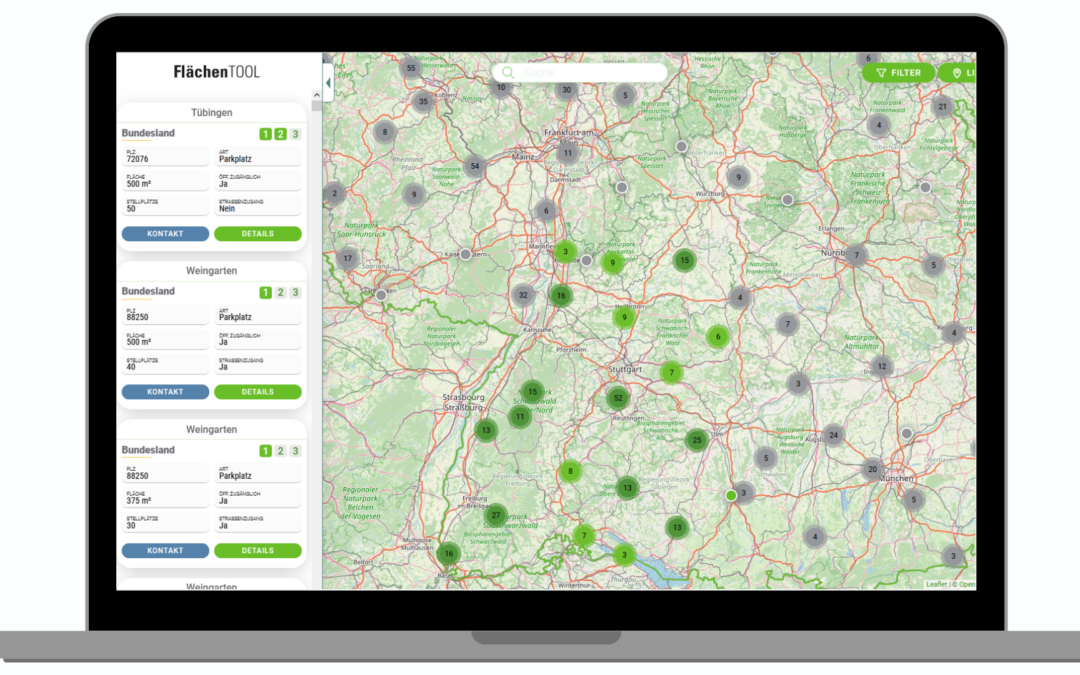
by Aischa | Apr 16, 2024 | Press releases
In 2021, the German government set itself the goal of making Germany the leading market for electric mobility with 15 million electric cars by 2030. Establishing charging infrastructure ahead of time is a key success factor here, as is data-based demand planning. The “Manufacturer survey of electric passenger cars: market development and technology trends” (“Herstellerbefragung E-Pkw: Marktentwicklung und Technologietrends”) factsheet published today by NOW GmbH provides essential assessments and forecasts for this planning.

by Aischa | Mar 11, 2024 | Press releases
Today at the Federal Ministry for Digital and Transport (BMDV), the Advisory Board of the National Centre for Charging Infrastructure [at NOW GmbH] presented a roadmap for introducing bidirectional charging in Germany. Leading members of the advisory board as well as representatives of the National Centre presented the paper to Daniela Kluckert, Parliamentary State Secretary, also Commissioner for charging column infrastructure, at the BMDV. Around 50 experts from industry and relevant stakeholders developed the paper together, under the leadership of EnBW and VDA.

by Aischa | Feb 9, 2024 | Press releases
Autobahn GmbH is pressing ahead with the expansion of the fast-charging infrastructure along the federal motorways. As part of the federal government’s Deutschlandnetz, the tender for almost 1,000 fast-charging points at 200 unmanaged motorway service areas was successfully completed today.

by Aischa | Feb 7, 2024 | Press releases
Daniela Kluckert, Parliamentary State Secretary at the Federal Ministry for Digital and Transport, and Dr. Cordelia Koch, District Mayor of Berlin-Pankow, paid a visit to the National Centre for Charging Infrastructure on 7 February 2024. Both discussed the challenges facing inner-city districts in the further expansion of charging infrastructure during an informative exchange with Johannes Pallasch and Dagmar Fehler from the centre’s management team.

by Aischa | Dec 21, 2023 | Press releases
Right on time for Christmas, the Deutschlandnetz, which is financed by the Federal Ministry of Digital and Transport, is commencing operations. The first of more than 900 locations in the Deutschlandnetz was officially opened today in Düren.

by wpdev | Nov 17, 2023 | Press releases
To accelerate the expansion of charging infrastructure, the state of Baden-Württemberg is now using FlächenTOOL, produced by the National Centre for Charging Infrastructure, to list 130 federally- and state-owned parking areas along federal and state roads.





